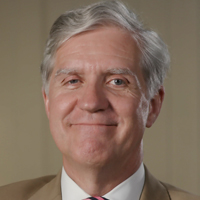
People are like certain municipal bonds because we all have an early redemption provision. The older we get, the more conscious we become of our own mortality. Since you cannot take it with you, most people have ideas concerning the disposition of their assets once they are departed this world. But at the same time, many put this off again and again.
What are your client’s concerns? How can you help address them, relieving at least one burden of stress from their shoulders?
For purposes of this article, let us talk in terms of money. Everything the client owns can be translated as having a certain value. That value is expressed in dollars and it represents their estate.
Here are some tips your clients can follow to get their estate in order so their wishes are best followed:
1. Write a will
According to the AARP, 60% of Americans do not have a will or a living trust. This means they have not left instructions concerning the disposition of their assets. This can be complicated if people promise certain hard assets to certain relatives but do not put anything in writing. Regardless of the size of the estate, instructions are necessary to determine who gets what after the client passes away.
2. Make gifts during their lifetime
It can make sense to reduce the size of their taxable estate by doing this. Absolute Trust Counsel, a law firm specializing in estate planning, makes the point that an “early inheritance” can give people money when they need it most. It can also reduce the value of their taxable estate. In practical terms, they can be sure the child they promised a specific ring or bracelet gets the right item because they handed it over personally.
3. Recheck those beneficiaries
When your client bought that insurance policy or set up that IRA account, they listed beneficiaries on the initial paperwork. Things can change over time. Beneficiaries might die. Married couples sometimes get divorced. Their will might specify “who gets what” but beneficiary designations usually supersede what has been spelled out in the will. Make sure their money will go where they think it is going.
4. Create a legacy that will live on
It’s been said that if you consider yourself indispensable, put your fist into a bucket of water and then pull it out. The water fills the space. Your client has done good during their lifetime and wants their money to continue doing good after they have gone. They can set up a foundation or similar charitable giving vehicle that they fund with assets. The foundation has a designated person or people who make contributions to charities in line with your client’s specified criteria.
5. Consider other ways to be remembered
Your client wants their name to be remembered after they have gone to their eternal reward. Instead of charitable gifts made for years going forward, they prefer something in the bricks and mortar department. Universities, hospitals, museums and other cultural institutions offer naming opportunities, especially during capital campaigns when they are erecting a new building. Your client can talk with their favorite institution and literally see a “shopping list” of buildings and rooms that can bear their name. It might not be “forever” but it should be for a long time.
Additional reading: Nine Actions to Make Older Clients Happy
6. Educate their grandchildren
Your client wants all their descendants to have a good start in life. They have determined a college education is the ticket. College savings plans need to be established for each child. This can be done during their lifetime. It might make sense to start making these gifts while your client is still alive, taking advantage of the annual gift tax exclusion.
7. Give the IRS as little as possible
Many people feel taxes are a part of everyday life. They hire an accountant to minimize their tax bill consistent with the law. Others view the IRS as the devil himself, determined not to pay a penny if they can get away with it. The federal estate tax threshold for 2022 is $12.06 million. Be aware this can change if Congress rewrites the rules. Also, your state might have its hand out too. Bring in the estate planning professionals as early as possible to help your client reduce their estate tax bill as much as possible.
8. Avoid a paperwork nightmare for their heirs
One of my former clients told me a story: When his mother died, her final words on her deathbed were: “I am sorry about the paperwork nightmare I am leaving you with.” That is chilling. It took years to sort out bearer bonds, uncashed coupons and unpaid tax bills. As your clients get older, encourage them to start organizing important documents and consolidating securities with one firm, ideally yours. Help them plan in advance to make settling the estate as easy as possible.
9. Tell them not to hide stuff
I had a former client whose heirs mentioned a lot of the client’s money had vanished. It was thought he sold securities, took the cash, bought gold coins and put them … somewhere. Maybe he buried them. He didn’t tell anyone. This has been a movie plot too. Let’s not forget the safety deposit box key with no clues as to the bank’s identity. Some people might feel safer “hiding stuff” but someone needs to know the hiding place. It is best to avoid this entirely.
Assisting your clients in getting their affairs in order or preparing their estate is another way you can demonstrate your value by helping them to plan ahead.
Bryce Sanders is president of Perceptive Business Solutions Inc. He provides HNW client acquisition training for the financial services industry. His book, “Captivating the Wealthy Investor,” is available on Amazon.







